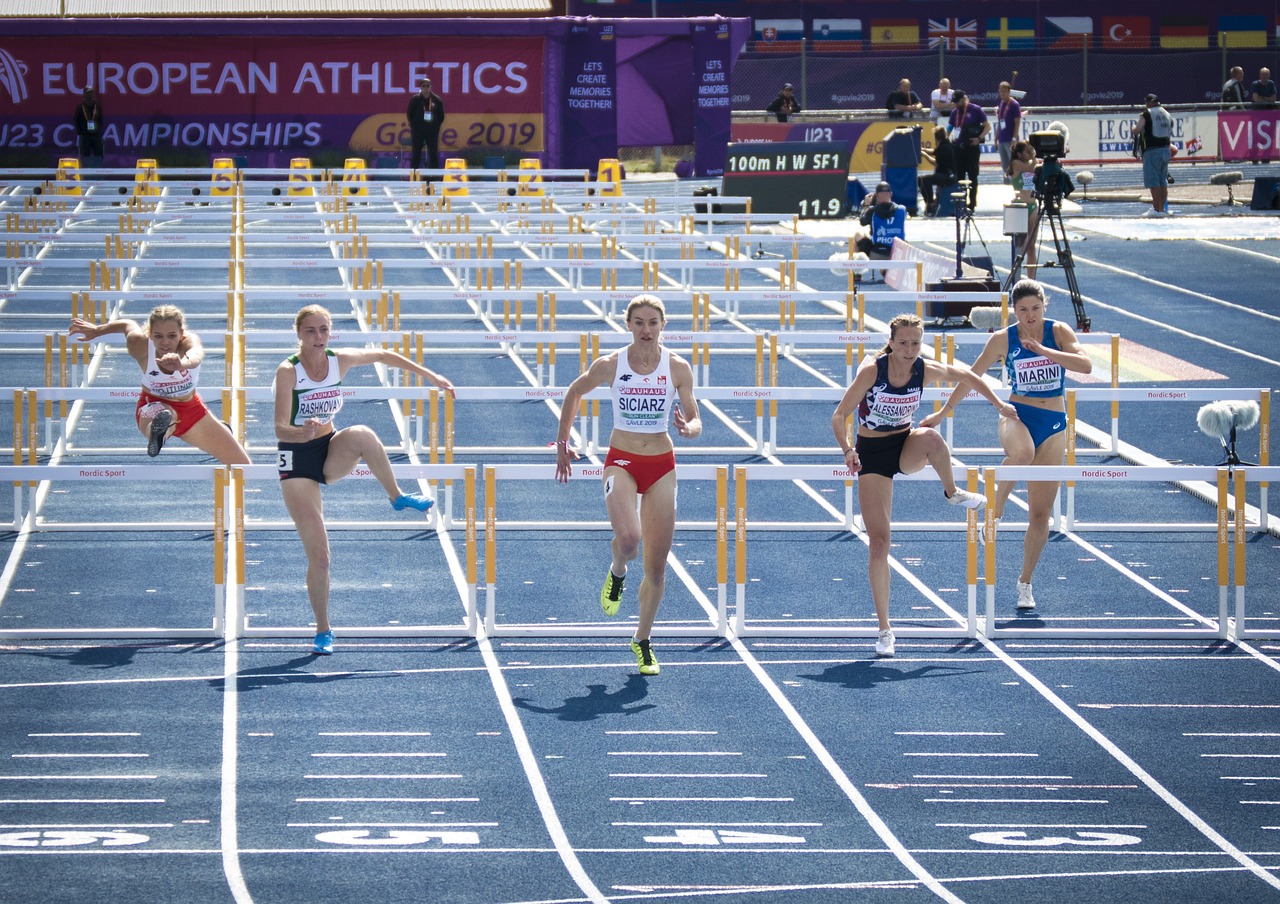What are effective mental resilience strategies for athletes in high-stakes competitions?

When it comes to sporting competitions, the measure of an athlete’s success isn’t just their physical prowess. It is an intricate blend of their physical abilities, mental toughness, and resilience in the face of rigorous challenges. This article delves into the realm of mental resilience – a crucial aspect that often determines an athlete’s performance during high-pressure situations in sports.
Understanding the Importance of Mental Resilience in Sports
What sets a world-class athlete apart from a good athlete isn’t just their physical conditioning, but also their mental fortitude. For athletes, mastering the art of mental resilience becomes all the more vital during times of high-stakes competitions.
Avez-vous vu cela : What is the significance of sports-related rituals in building team cohesion?
Mental resilience is the psychological attribute that allows individuals to adapt to situations of stress, anxiety, and pressure. In the context of sports, this resilience translates to an athlete’s capacity to maintain peak performance even under immense pressure and competition.
For athletes, the playing field isn’t just physical. It’s a battleground of the mind as well. The ability to endure mental strain, overcome setbacks and cope with anxiety are all part of an athlete’s journey. And these are the traits that can often make the difference between a good performance and a truly exceptional one.
A lire en complément : How do athletes manage their time effectively to balance training and academics?
Training the Mind: Cognitive Strategies for Athletes
Very often, we equate training with physical activity. But mental training is equally, if not more, important. Cognitive training techniques can help athletes develop the much-needed resilience to perform at their best.
A popular cognitive strategy employed by athletes is visualization. This involves the athlete mentally rehearsing the actions they need to take during competition. By doing so, they can enhance their focus, reduce anxiety, and improve their overall performance.
Another effective cognitive technique is self-talk. Athletes use this method to motivate themselves, improve their concentration, and manage stress. Positive affirmations and reminders can go a long way in boosting an athlete’s confidence and performance.
Physical Techniques: The Link Between Physical and Mental Health
It is important to remember that an athlete’s mental and physical health are inextricably linked. Physical wellness has a direct impact on an athlete’s mental state and vice versa. So, when we talk about resilience strategies, physical techniques have a vital role to play.
For example, deep breathing exercises can help athletes regulate their stress response, thereby promoting calm and resilience. Similarly, progressive muscle relaxation, a technique that involves tensing and relaxing different muscle groups, can help athletes manage physical stress and consequently, improve mental resilience.
Moreover, regular physical exercise itself has been associated with better mental health. By maintaining a regular exercise regimen, athletes can not only ensure peak physical fitness but also foster mental resilience.
Building a Resilient Mindset: Techniques for Emotional Well-being
Resilience isn’t just about handling stress. It is about nurturing emotional well-being, which is a significant aspect of an athlete’s mental health. Athletes can cultivate this through various techniques that promote emotional intelligence and balance.
For instance, mindfulness and meditation can be helpful for athletes to remain present in the moment and avoid unnecessary stress about past performances or future outcomes. These practices also promote self-awareness, which is key to understanding and managing one’s emotions.
Another valuable tool for emotional well-being is social support. Interactions and connections with coaches, teammates, family, and friends can provide emotional encouragement and serve as a buffer against the pressures of competition.
Overcoming Challenges: Resilience Through Adaptation and Growth
In the world of sports, challenges are a given. An athlete’s ability to adapt, learn and grow from these challenges is a testament to their mental resilience.
One way athletes can do this is by adopting a growth mindset. This approach views challenges and setbacks not as insurmountable obstacles but as opportunities for learning and improvement. By embracing this mindset, athletes can grow their skills, improve their performance, and enhance their resilience in high-stakes competitions.
In addition to a growth mindset, athletes can build resilience by setting realistic and flexible goals. This strategy allows them to strive for their ambitions while also being adaptable to changing circumstances.
While these strategies may not eliminate all stress and anxiety, they can equip athletes with the mental toughness to perform their best, even under pressure. After all, in the world of sports, resilience isn’t just about enduring stress, it’s about thriving in spite of it.
The Role of Sports Psychology: Cultivating Mental Toughness and Resilience
Sports psychology plays a significant role in fostering mental toughness and resilience in athletes. It provides them with the tools necessary to manage stress, handle performance anxiety, and reach peak performance, even in instances of high-stakes competitions.
A sports psychologist can aid athletes in a variety of ways. For instance, they can assist in developing mental preparation strategies before competition, aiding in decision making on and off the field, and providing tools to manage stress effectively. They can also help athletes deal with setbacks, teaching them to view these as opportunities for growth rather than obstacles.
One vital aspect of sports psychology is the emphasis on positive talk. This form of mental training involves replacing negative thoughts with positive ones, which can significantly improve an athlete’s performance and resilience. For instance, instead of thinking, "I can’t do this," an athlete would replace that thought with, "I can do this, and I will do my best."
Sports psychology can also help athletes set and achieve goals. Effective goal setting can serve as an essential motivational tool, pushing athletes to achieve their best. It can foster a sense of direction, provide a metric for progress, and increase an athlete’s confidence as they work towards, and eventually meet, their goals.
The Role of Student Athletes: The Intersection of Sports and Academics
Student athletes, who must balance their athletic commitments with their academic responsibilities, often face additional pressures which can test their mental resilience. The skills and strategies taught in sports psychology are thus particularly beneficial to these individuals.
Pre-competition routines can be especially helpful for student athletes. These routines help reduce anxiety, increase focus, and foster a sense of control. They can include physical warm-ups, mental visualization, positive self-talk, and deep-breathing techniques.
Moreover, decision-making skills learned through sports psychology can also be beneficial in an academic setting. These skills can help student athletes manage their time effectively, prioritize tasks, and make informed decisions regarding their academic and athletic commitments.
Lastly, student athletes can benefit from the teachings of sports psychologist Michele Richardson, who emphasizes the importance of mental well-being and psychological resilience in her work. Her techniques can help student athletes maintain their mental health, manage their performance anxiety, and ultimately, achieve high performance both on the field and in the classroom.
Conclusion: The Path to High Performance and Mental Resilience
Resilience in sports is a complex interplay of physical fitness, mental toughness, and emotional well-being. With the right strategies, athletes can cultivate a resilient mindset, manage stress, and deal with performance anxiety effectively.
Sports psychology provides a wealth of techniques to help athletes reach peak performance. From cultivating positive self-talk to effective goal setting, mental training can significantly enhance an athlete’s performance. In the high-pressure world of sports, these techniques are not just beneficial, they are essential.
For student athletes, the intersection of sports and academics offers additional challenges. However, with the tools provided by sports psychology, they can navigate these challenges with resilience and perseverance. They can use these tools not just to survive high-stakes situations, but to thrive in them.
In the end, the path to high performance in sports is not just about physical prowess. It is about cultivating mental resilience, maintaining mental health, and adopting a growth mindset. Because in the realm of sports, as in life, it is not just about how well we perform under ideal conditions, but how well we can adapt, learn, and grow in the face of adversity.
